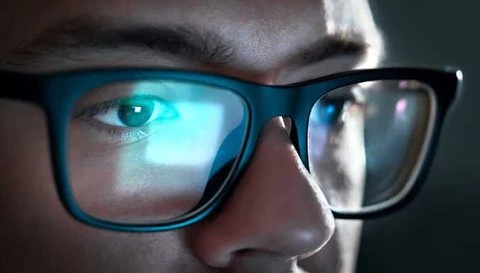BLUE LIGHT GLASSES In a very fast world wherever new technologies ar rising and weaving their manner into each skilled and private tasks daily, students place confidence in virtual resources for varsity, work, and amusement currently quite ever. As a results of this screens.
Overwhelming copious amounts of your time that might instead be place towards kinetic activities that stimulate our bodies still as our brains. With this accumulated reliance, however will a technologically-driven manner have an effect on our health? What ar the downfalls and the way will we tend to forestall this manner from inflicting permanent damage?
Eyewear corporations
Like Felix grey have promoted the utilization of “blue light glasses”, that ar supposed to dam the harmful blue lightweight rays emitted from much all electronic devices. Although, as explicit by UAB drugs, “no analysis has once and for all shown that blue lightweight causes semipermanent hurt, disease, or membrane harm,” conflicting opinions on the effectiveness of this product and provide alternatives to decreasing eye strain ar widespread.
Screen exposure has the foremost profound result on developing brains as critical associate degree adult brain at full maturity. one among the a lot of evident consequences could be a amendment in mood and behavior, that indicates an impact on one’s mental state.
In keeping with Forbes magazine teens who pay longer on electronic devices are expressing higher rates of depression and loneliness” despite their feeling a lot of “connected” with folks through social media. If the threat of a decline in mental state isn’t reason enough to decrease the number of your time we tend to pay on devices, contemplate the psychological feature repercussions.
The National Institutes of Health (NIH),
explicit that “children UN agency consume 2 hours of media each day have lower thinking and language scores on tests” than their non media observance counterparts (Vox Magazine). Considering the very fact that an oversized proportion of adolescents pay getting ready to.
If less than, 2 hours each day on digital screens, our generation has to be longer aware for the sake of our mental and medicine health. Active Health reiterates the result of screens on one’s psychological feature ability even additional. C
laiming that each half-hour spent observance tv will delay our learning at a rate “as very much like five hundredth higher” than if we tend to spent it faraway from screens. With this in mind, it’s evident that defrayment excessive amounts of your time on electronic devices will have lasting effects on our health, tho’ it begs the question on short-run effects.
Blue lightweight constitutes for “one-third of all visible light”
Might be found each unnaturally and naturally in keeping with a writing by UC Davis Health. Artificial blue lightweight emitted at a comparatively little concentration originates from televisions, cell phones, computers and the other artificial devices.
Defrayment consecutive hours viewing screens will result in dry, fretful eyes and issue concentrating. It can even create it harder to fall and keep asleep, particularly once electronic devices ar used right before hour. this can be as a result of blue lightweight stimulates alertness within the brain and makes it more durable for the brain.
Enter into “the deep REM essential for process and storing info from that day into memory” in keeping with analysis by Harvard graduate school.
The most potent supply of blue lightweight
Emanates naturally from the sun. Rahul Khurana, associate degree oculist and clinical representative for the yank Academy of medicine, claims that the strength of blue lightweight emitted from our devices is simply atiny low fraction of the sun’s blue lightweight.
And attributes eye discomfort to not the blue lightweight itself however rather to “staring at a screen for hours while not breaks” in keeping with The deviser Magazine. we are able to assume that the utilization of blue lightweight glasses is somewhat redundant for change the negative effects of screens on our eyes.
In fact, blue lightweight in its natural type will facilitate with alertness, memory and mood, and “regulates biological time, the body’s natural wake and sleep cycle” as explicit by UC Davis Health. Khurana suggests implementing the 20/20/20 rule as a method of preventing negative byproducts of screen exposure:
“For each twenty minutes of usage, look for twenty seconds and target one thing twenty feet away,” he said.
Another various to blue lightweight glasses would be the utilization of “blue-light filters” for hand-held devices, that ar believed to dam an oversized amount of blue lightweight from reaching the eyes “without touching the visibility of the display” in keeping with UC Davis Health.
If your main symptom is eye condition, an easier and fewer financially exigent answer would be the utilization of eye drops from an area store. Though the utilization of blue lightweight glasses might not essentially forestall retinal harm, there ar some discovered advantages to exploitation them.
They sometimes contain some type of filter or tint on the lenses, that acts as a crooked mechanism against harmful rays of blue lightweight. As explicit in a writing by communication Magazine Dr. John Jarstad, associate degree professor in medicine and eye surgery at The University of Missouri.
That Many reasonably tint in glasses whereas on the pc [will] act as some variety of a wet chamber effect” and reduce the chance of condition developing within the eyes. therefore though there’s no proof of blue lightweight blockers preventing semipermanent harm.
They’ll profit people
That pay copious amounts of your time on screens by curtailing the number of blue lightweight that reaches the eyes. in keeping with UC Davis Health, blue lightweight glasses have the potential to “help folks Have a a lot of quiet sleep
by decreasing the stimulation of the brain caused by blue lightweight and might quickly scale back eye condition. With such a range of opinions concerning truth effectiveness of blue lightweight glasses, it’s ultimately up to every individual person to choose whether or not or not they’re a worthy purchase.










